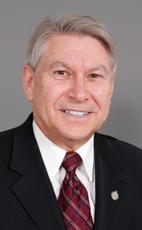Madam Speaker, I rise today to join in the debate of Bill C-313, an act to amend the Criminal Code, prohibited sexual acts.
Bill C-313 has as its purported objective enhanced protection for young persons against sexual exploitative or predatory conduct.
As I understand the arguments advanced in support of the bill, it seeks primarily to better protect some youth, namely 14 and 15 year olds, against sexual predatory conduct by adults and it is premised on the belief that our existing laws and proposed reforms do not adequately protect youth against this kind of conduct.
The Canadian Centre for Justice Statistics, April 2005 Juristat, “Children and Youth as Victims of Violent Crime”, recently reported that children and youth accounted for 61% of all victims of sexual assault reported to police and that half the sexual assault victims under the age of six were assaulted by a family member. Sexual assaults against children and youth were committed by strangers in only 5% of these reported cases, with the majority of the victims aged 14 to 17.
We must remain vigilant to ensure that our criminal laws are current and responsive to all forms of sexual abuse and exploitation of children and youth, and so I appreciate the opportunity to participate in this debate.
Would Bill C-313 better protect children and youth against this type of sexual abuse and exploitation? We should recall that under the existing Criminal Code protections against sexual assault, any non-consensual sexual activity, regardless of age, is a sexual assault. It is also important to understand that all of our existing prohibition against sexual assault, including the child specific sexual offences, apply to all sexual activity ranging from sexual touching, such as kissing, to sexual intercourse.
The Criminal Code does in fact protect children and youth against sexual exploitation, specifically it already prohibits sexual exploitative or predatory conduct toward children and youth under 18 years where it involves prostitution, pornography or where it involves a relationship of trust, authority or dependency.
As well, the Criminal Code already prohibits the use of the Internet for the purposes of communicating with a child to commit a sexual offence against that child.
Looking at Bill C-313, we see that it purports to strengthen these protections only for 14 and 15 year olds, only for some offences and only by focusing on the apparent consent of these young persons.
Bill C-313 seeks to provide this additional protection by increasing the age of consent for non-exploitative sexual activity from 14 to 16 years for some but not all related offences. It does not, for example, propose to amend section 172.1, Internet luring, even though such conduct has been identified as some of the predatory conduct that Bill C-313 is intended to better address.
It also does not propose to amend section 810.1 of the Criminal Code, which is a preventive measure that enables the court to prohibit a person from attending places frequented by children under 14 years or from using the Internet to communicate with children under 14 years where there is a reasonable ground to believe that person may commit a sexual offence against a child.
In raising the age of consent, Bill C-313 would also expand the existing close in age exception for 12 and 13 year olds to include 14 and 15 year olds. In doing so, it would maintain the existing prerequisite conditions that the other person must be less than two years older and under 16 years of age and that there cannot be any relationship of trust, authority or dependency. The apparent intent with this amendment is to allow close in age peers to engage in consensual sexual activity and yet this peer group exception would result in criminalization of consensual peer sexual activity.
For example, under the proposed exception in Bill C-313, a 15 and a half year old girl could engage in sexual activity with her 15 year old boyfriend but she would be prohibited from doing so on the day of her 16th birthday. Under Bill C-313, what was legal on one day between two consenting teenage peers, would become illegal on the next.
In contrast, the government's response to this issue, which we find in Bill C-2, the protection of children and other vulnerable persons, would provide increased protection against sexual exploitation to all youth between 14 and 18 years of age without criminalizing typical consensual sexual activity.
Bill C-2 focuses on the wrongful conduct of persons who exploit or prey upon vulnerable young persons and not on whether the young person consented to that act. Bill C-2 would do this by requiring the courts to infer that a relationship with the young person is exploitive of that young person by looking to the nature and circumstances of that relationship. The bill would direct the courts to consider specific indicators of exploitation, including the age of the young person, any difference in age between the young person and the other person, the evolution of the relationship and the degree of control or influence exerted over the young person. In other words, Bill C-2 accepts that there are different indicators of exploitation.
The chronological age of the young person is one such indicator. Bill C-2 tells the courts to consider this factor, but there are others. For example, if the other person is much older than the young person, this is likely an indicator that the relationship is exploitive of the young person. Bill C-2 tells the courts to consider this age difference.
How the relationship evolved is another factor. For example, did it evolve secretly and quickly over the Internet. Bill C-2 tells the court to consider this as well.
Bill C-2 is the way we will be able to better protect all young persons against predatory and exploitive conduct, not Bill C-313. For those reasons I do not support Bill C-313.

